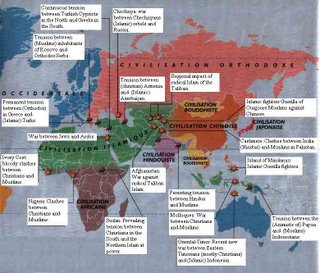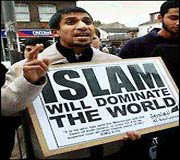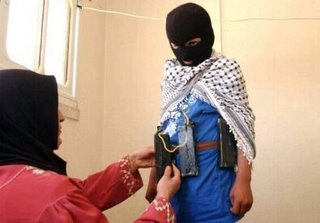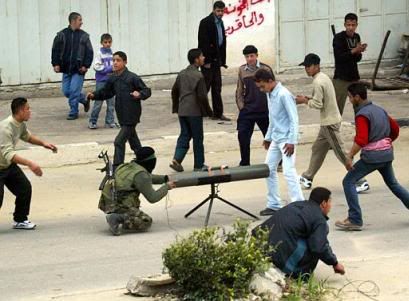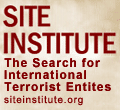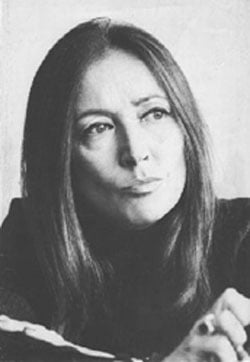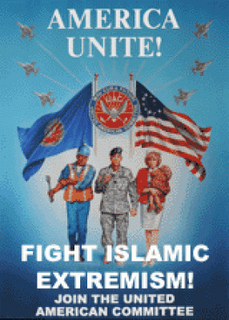Thursday, November 01, 2007
Britons Protest Visiting Saudi King [against the Evil Islamic Oppressive Empire]
CBS ^ 10, 30, 2007
Britons Protest Visiting Saudi King
Britain's Queen Welcomes Saudi King;
Protesters Condemn Rights Abuses In Kingdom
LONDON, Oct. 30, 2007
----------------------------------------------------
(AP) Queen
Elizabeth II welcomed Saudi Arabia's King Abdullah Tuesday with an honor guard
and rode with him to Buckingham Palace in her gilded carriage, passing
protesters who condemned the oil-rich kingdom for alleged human rights abuses.
Before arriving Monday for the first state visit by a Saudi king in two
decades, Abdullah accused Britain of failing to act on intelligence that might
have prevented the 2005 London transit bombings. Analysts said the comments
appeared to be an attempt to distance himself from the extremists and at the
same time pre-empt attacks on Saudi Arabia's record of fighting terrorism.
"I don't think the U.K. should be hosting human rights abusers," said
Anna Jones, 26, who donned a mask of Queen Elizabeth as she joined a row of
dozens of other protesters along the procession route.
Other protesters
yelled and waved banners condemning the British government's "hypocrisy" and
saying: "You can't do this in Riyadh."
Vince Cable, acting leader of the
opposition Liberal Democrats boycotted the visit, claiming the kingdom has a
poor human rights record, especially regarding torture, public executions and
discrimination against women.
Before the ride to the palace, Abdullah
reviewed an honor guard at a parade ground in central London, a lavish welcome
criticized by the demonstrators.
Later at a halal banquet hosted in
Abdullah's honor, the queen spoke of "shared values" and said links between the
two countries' armed forces were "stronger than ever."
Abdullah,
speaking through a translator, praised Britain's "sense of tolerance" and
appealed for its help in securing peace for the Palestinian people.
Saudi Arabia, the world's leading oil producer, is an absolute monarchy
where citizens are expected to follow a strict interpretation of Islam.
Convictions of murder, drug trafficking, rape and armed robbery carry mandatory
death sentences by beheading.
As the pageantry unfolded in London for
Abdullah's visit, two men convicted of murder were beheaded in the Saudi capital
of Riyadh, bringing to 119 the number of people beheaded by the kingdom this
year.
British officials acknowledge the abuses, but say Saudi Arabia is
their closest ally in the Middle East and Abdullah, 82, is helping it to slowly
reform.
Abdullah was scheduled to meet Prime Minister Gordon Brown
Wednesday to discuss Iraq, the Iran nuclear standoff, the Middle East peace
process and counterterrorism.
A cartoon in The Daily Telegraph on
Tuesday depicted Brown lauding "universal human rights" but bowing to the Saudi
king.
Others accuse Saudi Arabia of spreading ideas that fuel extremism
and terrorism.
The Saudi royal family's legitimacy depends on a
puritanical version of Islam known as Wahhabism. The Saudi royals face the
delicate task of maintaining the approval of some of the same clerics who
inspire al-Qaida-oriented terrorists.
The London-based The Policy
Exchange think tank said in a report published Tuesday that organizations linked
to the Saudi government have been trying to export that puritanical version of
Islam by distributing extremist literature to mosques and Islamic centers in
Britain.
The material called for violence against enemies of Islam,
including women and gays who demand equal rights, according to the think tank.
Abdullah accusation that Britain failed to act on intelligence that
might have prevented the 2005 London transit bombings touched off debate about
the kingdom's response to terror.
British officials denied the king's
claims, saying they received information from Saudi officials but it was not
about the London transit bombings, which killed 52 commuters and four suicide
bombers.
Abdullah's visit has also been clouded by a U.S. investigation
over whether a Saudi prince received kickbacks in an $87 billion arms deal with
a British weapons manufacturer. The British government dropped its own
inestigation after then-Prime Minister Tony Blair said it would put British jobs
in jeopardy and could weaken Saudi cooperation in combating terrorism.
Critics accuse the government of trying to cover up Saudi corruption to
safeguard Britain's financial interests in the country, the biggest market for
British exports in the Middle East.
Blair ordered the investigation be
dropped in December amid news reports that claimed Saudi officials had
threatened to drop plans to buy a new Eurofighter aircraft from British
aerospace firm BAE.
U.S. authorities are still waiting for British
investigators to release their files.
http://www.cbsnews.com/stories/2007/10/30/ap/world/main3432961.shtml
Technorati - Freedom 911 Al Qaida Al Qaeda Al Qaida Bin Laden Islamofascism Islam Apes and pigs Terrorism Terrorist oganization Hamas 'palestinians' Al Aqsa Alaqsa Muslims Christians Jews Arabs bombing Infidels Israel US Security Jihad War on Terror Iraq Iran Mosque Media bias West non Muslims Sharia Stoning Wahabbism Saudi Arabia Oil Oil lobby Oppression
Labels: arabs, evil empire, human rights, muslims, Oppression, Saudi Arabia, Wahabbi lobby, wahabbism

